#sport health exercise science
Explore tagged Tumblr posts
Text

LOVELIES!! if i was to sell pdfs of ib notes, would anyone be interested?? for example, the ss above is a little bit from my lower body muscle details, function and sporting examples doc (it has 4028 words and i've included pictures).
i would sell groups of ~10 documents for $10-15.
i also take physics hl (moving to biology next term but i have all of the topic a notes), business management hl, spanish ab, english sl, and mathematics aa sl.
❤️ nene
#that girl#becoming that girl#student#productivity#student life#study blog#chaotic academia#academia#ibdp#ibdp student#study motivation#studyblr community#study notes#study with me#studyspo#notetaking#international baccalaureate#sport health exercise science#health science#science#biology#physics#stem#student visa#studying#academics#college#stem academia#light academia#romantic academia
18 notes
·
View notes
Text
The study adds to the growing body of science that suggests that “cocoon therapy”—bed rest in the dark with minimal mental stimulation after concussion—isn’t good for patients. Instead, when done under the guidance of a trained clinician, exercise is preferable, says Landon Lempke, a research fellow with appointments at the University of Michigan Concussion Center and the Exercise and Sport Science Initiative, both housed in the School of Kinesiology and first author of the study in the journal Sports Medicine. The observational study monitored more than 1,200 college athletes at 30 institutions nationwide before injury and at injury until medical clearance. The study wasn’t designed to establish a causal relationship between exercise and concussion recovery, but the findings are in line with previous smaller, randomized controlled trials identifying similar relationships. Athletes who began light exercise within 48 hours were considerably more likely to see symptoms resolve than those who did not exercise, with about 2.5 days faster symptom recovery time. Athletes who started exercising roughly eight days or later after injury were significantly less likely to experience symptom recovery than those who did not exercise, and took about five days longer to recover.
Continue Reading
89 notes
·
View notes
Text
Furthermore: Swimming is a sport in which you have to have a certain minimum amount of body fat in order to excel. If you're not fat enough, your buoyancy is worse, you lose heat too fast, and your body isn't a streamlined enough shape. It's not the most fat-requiring sport, that would be sumo, but it's in the top half.
It's honestly such a shame that we've made such a huge thing out of swimming and swimsuits and looking good in swimsuits and fat people not looking good in swimsuits. Swimming is actually the perfect exercise for fat people because it puts zero pressure on the joints, which is a much bigger concern for us than it is for skinny people, and lets you exercise basically every muscle group without straining too much and risking injury. Yet somehow this is one of the least accessible exercises to fat people due to nothing more than a culture of body shaming. The work to unlearn all the shame to be comfortable in a bathing suit in front of strangers is huge even for conventionally attractive people, but I could probably count on one hand the number of fat people I've met who were confident enough to get in a bathing suit and go swimming in public.
And what is the exercise that somehow everyone thinks they should do instead? Jogging. It's more accessible, sure, it's easy and costs nothing to go outside and run. But I need you to understand telling a fat person to go running is basically telling them to go destroy their knees. Not to mention it's probably one of the most physically uncomfortable exercises to do when you have a body that jiggles even with compression garments.
Imagine a world where everyone had the ability and equal access to whatever exercise fit them best and helped them be happy and healthiest. Imagine a world where fat people go swimming.
#exercise#health#fat-shaming#the things you learn when you take lecture notes for a living#body positivity#sport & exercise science#note i said “in order to excel”#anyone can swim recreationally#but as in other sports there's a particular body type that tends to do well
55K notes
·
View notes
Text
What's the most fun way to exercise?
What’s the most fun way to exercise? The most fun way to exercise can vary greatly from person to person, as it largely depends on individual preferences, interests, and what someone finds enjoyable. However, making exercise a fun activity can help with motivation and consistency. Here are several fun ways to incorporate physical activity into your routine: Dance Fitness Classes: Join dance…
View On WordPress
0 notes
Text
#commercial gym equipment#rehab & recovery#biomecenics#exercise_science#fitness enthusiasts#gym_equipment#health & fitness#exercise physiology#exercise_physiology#Sports_science#exercise sports science#sports physiology#Sports_Science_Equipment
0 notes
Text
The Role of Exercise in Preventing Chronic Diseases: A Comprehensive Review
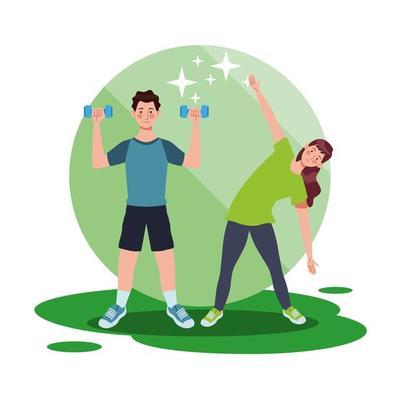
Regular exercise is commonly recognised as an important component of living a healthy lifestyle. Its advantages go beyond physical fitness and include the prevention and management of chronic diseases. This blog article will investigate the impact of exercise on numerous chronic illnesses, using recent scientific research released between 2018 and 2023 as evidence. We can better understand the importance of incorporating physical activity into our everyday lives by investigating the scientific evidence on the benefits of exercise and its association with disease prevention.
EXERCISE AND CARDIOVASCULAR HEALTH: Recent scientific study indicates that regular physical activity reduces the risk of cardiovascular disorders such as coronary artery disease, stroke, and heart failure (Smith et al., 2015). Aerobic activity, such as brisk walking, jogging, or cycling, improves cardiovascular fitness, lowers blood pressure, and lowers LDL cholesterol levels, all of which contribute to better heart health (Bouchard et al., 2012).
EXERCISE AND DIABETES PREVENTION: Type 2 diabetes has become a global epidemic, yet current research highlights the critical role of exercise in its prevention. Regular physical activity appears to enhance insulin sensitivity, aid in weight maintenance, and reduce the chance of developing diabetes (Colberg et al., 2010). Individuals who engage in moderate-intensity exercise, such as brisk walking for 150 minutes per week, have a decreased risk of type 2 diabetes than their sedentary counterparts, according to research published in the last five years (Tuomilehto et al., 2001).
EXERCISE AND MENTAL HEALTH: In addition to physical benefits, exercise has a significant impact on mental health. Mandolesi et al. (2018) found that regular physical activity lowers the risk of depression, anxiety, and cognitive deterioration. Exercising causes the release of endorphins, chemicals that boost emotions of enjoyment and reduce stress. Furthermore, physical activity increases blood flow to the brain, promoting neuron development and increasing cognitive performance (Ratey & Hagerman, 2008).
EXERCISE AND CANCER PREVENTION: New study reveals that exercise can help prevent and control several types of cancer. Regular physical activity, according to studies published in the last five years, lowers the chance of acquiring colon, breast, and prostate cancers (Friedenreich et al., 2016). Exercise helps to maintain a healthy body weight, reduces inflammation, improves immunological function, and balances hormones, all of which contribute to a lower risk of cancer (Moore et al., 2016).
In conclusion, exercise is proving to be an effective therapy in the prevention and management of chronic diseases. Regular physical activity has numerous advantages, ranging from cardiovascular health and diabetes prevention to mental well-being and cancer risk reduction. It is critical to prioritise exercise as an intrinsic part of our daily routines, aiming for at least 150 minutes of moderate-intensity aerobic activity per week. We may considerably improve our general health and lower our risk of chronic diseases by including exercise into our daily life.
References:
Bouchard, C. et al. (2012). Physical Activity and Health. Human Kinetics.
Colberg, S.R. et al. (2010). Exercise and Type 2 Diabetes: The American College of sports Medicine and the American Diabetes Association: Joint Position Statement. Diabetes Care, 33(12), e147-e167.
Friedenreich, C.M. et al. (2016). Physical activity and cancer prevention: etiologic evidence and biological mechanisms. Journal of Clinical Oncology, 34(9), 987-994.
Mandolesi, L.et al. (2018). Effects of Physical Exercise on Cognitive Functioning and Wellbeing: Biological and Psychological Benefits. Frontiers in Psychology, 9, 509.
Ratey, J.J. & Hagerman, E. (2008). Spark: The Revolutionary New Science of Exercise and the Brain. Little, Brown Spark.
Smith, S.C. et al. (2015). AHA/ACC guidelines for secondary prevention for patients with coronary and other atherosclerotic vascular disease: 2006 update endorsed by the National Heart, Lung, and Blood Institute. Journal of the American College of Cardiology, 47(10), 2130-2139.
Tuomilehto, J.et al. (2001). Prevention of Type 2 Diabetes Mellitus by Changes in Lifestyle among Subjects with Impaired Glucose Tolerance. The New England Journal of Medicine, 344(18), 1343-1350.
Copyrights: If you like the post and want to use the information please give credits to my profile. Cheers :)
#exercise#fitness#health#wellness#cardiovascular#cardiovascular health#mental health#diabetes prevention#comprehensive review#cancer prevention#science#sport science#scientific research
0 notes
Text
NFL star Aaron Rodgers went to a darkness retreat to contemplate his future. What is that and how does it work? | CNN
CNN — For four days this week, home for Green Bay Packers quarterback Aaron Rodgers was a pitch-black room. There were no phones, no television, no lights or distractions. Just Rodgers, alone with his thoughts, in a cabin built specifically for prolonged isolation in the dark. When the four-time NFL MVP announced plans earlier this month to contemplate his NFL future in isolation at a…
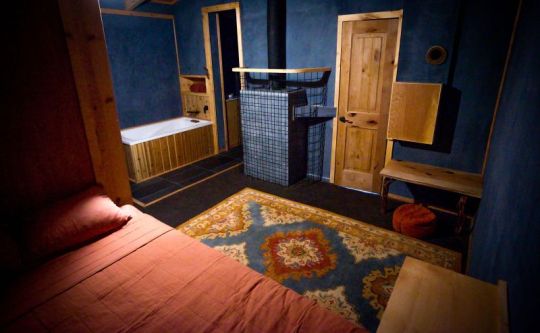
View On WordPress
#Aaron Rodgers#diet#domestic alerts#domestic-health and science#Exercise and Fitness#football (american)#health and medical#iab-american football#iab-diseases and conditions#iab-fitness and exercise#iab-healthy living#iab-medical health#iab-mental health#iab-sports#international alerts#international-health and science#leisure and lifestyle#medical fields and specialties#meditation and yoga#NFL#nutrition and fitness#psychology#sports and recreation#sports figures#sports organizations and teams
0 notes
Text


ˏˋ°•*⁀➷ 𝐓𝐡𝐢𝐧𝐠𝐬 𝐭𝐡𝐚𝐭 𝐦𝐚𝐤𝐞 𝐲𝐨𝐮 𝐡𝐚𝐩𝐩𝐲
(Sun in 1h): Sports, fashion/beauty related things [examples: makeup, shopping, etc], looking good, being a leader, new beginnings, etc
(Sun in 2h): Shopping/spending money, eating, singing, financial stability, collecting things, giving/receiving things, being around others that bring stability to your life, cooking, going out to eat, etc
(Sun in 3h): Learning, socializing and sharing your opinions and perceptions with others, social media, math, siblings, school, watching gossip go down but not being involved in it yourself, etc
(Sun in 4h): Your family/time with your family, emotional outlets, holidays, being your most feminine self, baking, going to the ocean/beach, self care, etc
(Sun in 5h): Romance, sex, doing risky things, children, performing, acting, concerts, video games/games in general, watching other peoples drama but not getting involved, etc
(Sun in 6h): Helping others/doing things for others, exercising or taking care of your physical health, being hygienic [example- showering], constantly improving yourself as a person, animals, etc
(Sun in 7h): Being in relationships, always having a companion, partnerships, looking attractive/beautiful, music, equality, harmony, etc
(Sun in 8h): Sex/orgasms, solving mysteries/crimes, having power, keeping your life private, deep connections/intimacy with people, magic, the occult, etc
(Sun in 9h): Traveling, teaching others, school, learning things, photography, television, media, experiencing different cultures, your grandparents, religion, your beliefs, being involved with the law, etc
(Sun in 10h): Your career, working, fame, being a/the boss and directing things, achieving things, becoming an expert in things, being responsible/put together, your father figure, increasing your status, etc
(Sun in 11h): Hanging out with your friends, technology, partying, film, engineering, science, socializing, inventing things, manifesting, being involved in clubs, etc
(Sun in 12h): Sleeping, healing others, spirituality/spiritual things [examples: astrology, tarot, collecting crystals, etc], music, weed, being alone, etc

#astrology chart#birth chart#astrology#astrology blog#astrology community#sun house#sun#sun astrology
3K notes
·
View notes
Text
The Lifestyle of Nikola Tesla
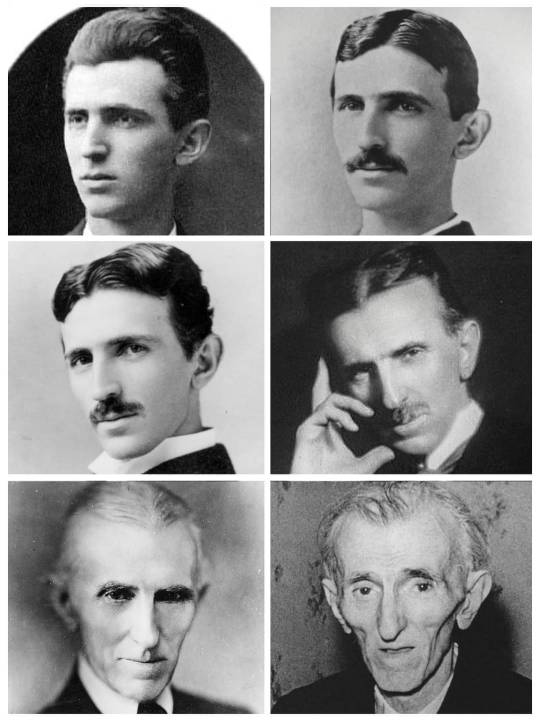
Nikola Tesla was a very tall and skinny man, standing over six feet and weighing around one hundred and forty pounds. He had light blue-gray eyes, which was considered odd because he was of Serbian descent who were typically known to have darker eyes. Tesla, probably joking, said to a reporter that his eyes used to be dark, but using his mind so much had made them many shades lighter. The inventor was known to be very elegant, stylish, meticulous in his grooming, clothing, and regimented in his daily activities.
Tesla never married and remained a celibate and a bachelor his entire life. Tesla was solely committed to the principles of science above all else, and for this reason, he denied the love and companionship of a female counterpart. He chose to lead a solitary life, hoping only that this sacrifice to work would make his name live on through many centuries still to come.
One of his few hobbies other than work was feeding birds. Tesla’s respect for birds began when he was a child growing up in the Austro-Hungarian Empire. He and his local friends made a sport out of catching live birds, and when Tesla himself caught a couple of keepers, he and his friend found themselves getting attacked by a murder of crows. The revolt forced the boys to release the birds and take cover. In America, he made it a specialty of his to treat sick pigeons, which seems odd because he was quite the germaphobe. He would feed them every day on his daily walks and would also take in wounded pigeons and nurse them back to health at his hotel in New York. He seemed to have had a better connection with birds than with most people. In 1917, he was awarded the Edison Medal, and upon receiving the award, the inventor could not be found. He was later found feeding pigeons near a local library and was persuaded back to the ceremony to give his speech.
Tesla suffered from an obsessive compulsive disorder, and because of this, he developed some very strange idiosyncrasies and phobias, such as having a strong dislike against earrings, pearls, peaches, and touching other people's hair. He counted the steps in his walks and calculated the cubical contents of soup plates, coffee cups, and pieces of food. All repeated acts or operations he performed had to be divisible by three.
While living in New York, Tesla kept his laboratories absolutely clean and pure, refused to touch other people, would wear gloves while shaking hands, and insisted upon personally cleaning his own plates and silverware at restaurants with his requested 18 napkins. This cleanliness was all intentional because, as a child, he almost died from cholera, which raged in the region of his hometown Lika due to contaminated water. Many found Tesla’s actions strange, but to him, it was a very important measure to protect his health.
In another way to keep his body clean and pure, Tesla invented an electrical apparatus that could give the human body a dry bath by passing millions of volts of electricity through it (similar to his demonstrations in the early 1890s where he passed electricity through his own body). His oscillator was a small, drum-like object about two feet long by one foot wide and could apply half a million volts of electricity through his body. The large amount of electricity would affect the germs without destroying the cells of the tissues of the body. Though his oscillator seemed like a fountain of youth, Tesla maintained his conventional ideas of health. He bathed daily, believed in plenty of exercise, and would walk eight or ten miles every day. He said that he never would take a cab or other conveyance and relied on his leg power for transportation.
His diet was a crucial part of his daily routine to remain healthy and to prolong the length of his life. He was very fussy and particular about his food: he ate very little, but what he did eat had to be the very best. He wasn’t a complete vegetarian; he ate meat, just not very occasionally (perhaps once or twice a year). He did believe though that humankind should move towards a vegetarian diet, not just because eating meat the way we do is “barbarous,” as he said, but because he believed the vegetarian diet is more beneficial to the human body.
In his later years, he never smoked, drank tea, coffee, alcoholic beverages, or consumed any other stimulant. Since he saw life through the lens of his mechanistic theory of life, he took great care of his body as if it were a machine properly maintaining its best efficiency.
As for sleep, Tesla reported that he was a poor sleeper and had very unusual resting patterns. He claimed to only sleep a few hours each day and would oftentimes practice polyphasic sleep where he would take short naps for restoration instead of sleeping for a long period of time.
Unfortunately for Tesla and his clean and healthy lifestyle, in 1937, at the age of 81, he was hit by a taxicab during one of his regular walks. It is likely he was jaywalking because he admittedly was known to do so. He broke three ribs and seriously injured his back. Tesla would be bedridden for months while refusing to see a doctor, and on top of this would catch pneumonia, which would plague his health for the last 5 years of his life. I believe this accident and sickness would play a major role in the rapid decline of his health, both mentally and physically, and his goal of living past a century would never be realized.
Nikola Tesla had a unique and eccentric lifestyle and was known for his intense work habits, often spending long hours in his laboratory. So much so that his friends would seriously worry about his health. Financial difficulties were a recurring theme in his life, and he died in relative obscurity. Despite these challenges, Tesla's legacy is marked by his groundbreaking contributions to the field of electrical engineering.
239 notes
·
View notes
Text
⋆♱✮☽ astrology and education ☽✮♰⋆



🗡 having issues with picking your major? or just interested to see which major/job would suit you? astrology can help!
🗡 the planet we'd have to look at is jupiter! jupiter represents higher education! you can also look into your 9th house or jupiter aspects with other planets.
🗡this post will go over jupiter placements and list out possible majors suited for you!
🗡jupiter 1st house: cosmetology, fashion designs, dermatology, design, craniology. (The first house is also represented by the skull or head!).
🗡jupiter 2nd house: business, agribusiness, dietetics, agriculture, music theory, vocal, any music major (music business, composition, jazz studies, etc.), visual arts.
🗡jupiter 3rd house: communications, media research, advertising, education, journalism, creative writing.
🗡jupiter 4th house: child development, geology, environmental science, architecture, genealogy, biology,
🗡jupiter 5th house: film, theatre, dance, art history, reproductive biology, sculpting, interior design.
🗡jupiter 6th house: nursing, sports management, sports science, kinesiology, health and exercise science, public health, physical therapy, healthcare administration, animal science, forensic science.
🗡jupiter 7th house: romance studies, law and legal studies, business law, political science, (because the 7th house can also be about connections and contracts!! Also Libra rules the 7th house and Libra represents Justice).
🗡jupiter 8th house: thanatology, master of psychotherapy and spirituality, finance, business administration, mortuary science.
🗡jupiter 9th house: tourism, international relations, international business, theology and religious studies, english (or any other languages), physics, astronomy, computer science, foreign policy, history, cultural anthropology, philosophy.
🗡jupiter 10th house: entrepreneurship, sales, marketing, public relations, entrepreneurial studies, economics, public administration.
🗡jupiter 11th house: computer engineering, electrical engineering, cybersecurity, information systems, sociology, social work, humanities, human services.
🗡jupiter 12th house: affective science, neuroscience, psychopathology, psychology, counseling/therapy, pharmaceutical sciences.
#kpop astrology#astrology#kpop birth chart#astro notes#astro placements#birth chart#career astrology#school astrology#jupiter#jupiter astrology#astrology readings#astrology chart#astro observations#astro community#mc astrology
115 notes
·
View notes
Text


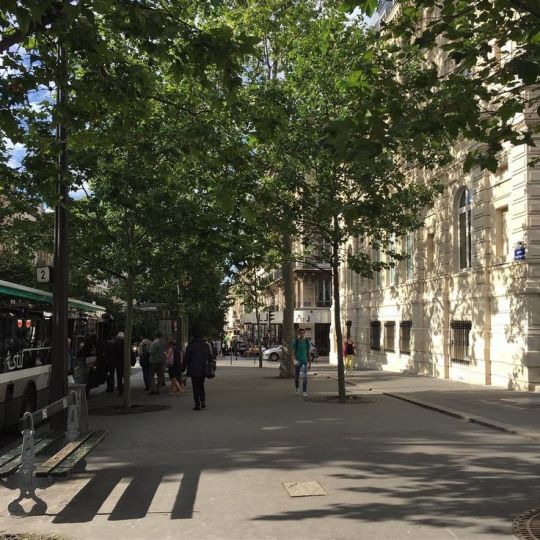
¡hola!
hello! my name is joanne, or nene. i've been making content under @nenelonomh for a year and a bit now - with a focus on my life, consistently learning and growing.
i'm an aussie based in queensland who studies the ib. my subjects are: sports exercise health science hl, biology hl, english sl, mathematics aa sl, business management hl and español sl.
i'm currently training for a 96km hike (july '25), trying to maintain my grades and experiencing this life to the best of my ability. i enjoy film, writing and you’ll forever catch me dreaming.
links to pages & other projects:
- ,, the study corner - ,, advice and learning - ,, adventures - ,, instagram - ,, pinterest - ,, blog site - ,, @stopdoomscrolling-cafe
#masterlist#intro post#introduction#study blog#studyblr#international baccalaureate#study notes#blog intro#introductory post#introduction post#elonomh#elonomhblog#academia#student life#that girl#becoming that girl#it girl aesthetic#nenelonomh
233 notes
·
View notes
Text
An instructor at the University of Kansas has been placed on leave after a video on X showed him suggesting to his class that men who won't vote for a female president should be shot.
"(If you think) guys are smarter than girls, you've got some serious problems," the man in the video said. "That's what frustrates me. There are going to be some males in our society that will refuse to vote for a potential female president because they don't think females are smart enough to be president. We could line all those guys up and shoot them. They clearly don't understand the way the world works.
"Did I say that? Scratch that from the recording. I don't want the deans hearing that I said that."
The university confirmed the video was recorded during a class this semester.
"We are aware of the video, which was recorded during a class earlier this semester," said Erinn Barcomb-Peterson, a KU spokesperson. "The instructor is being placed on administrative leave, pending further investigation. The instructor offers his sincerest apologies and deeply regrets the situation. His intent was to emphasize his advocacy for women’s rights and equality, and he recognizes he did a very poor job of doing so. The university has an established process for situations like this and will follow that process."
In a similar statement on X, KU added that the comments "made an inappropriate reference to violence."
Who is the KU instructor in the video?
Barcomb-Peterson confirmed that Phil Lowcock is the instructor in the video.
Lowcock's name had been circulating on social media. His staff page on the KU Athletics website no longer exists, and at least one social media post by an athletics account that mentioned him — a staff highlight in April — has been deleted. As of Wednesday afternoon, he was still listed on the university's online directory as a lecturer.
The 2015 KU track and field media guide said Lowcock has taught at KU since 1984. As of 2015, he was an academic adviser for multiple athletics teams while doing support work for international student-athletes in addition to be an adjunct faculty member in the health, sport and exercise science department.
A request for comment sent to Lowcock's KU email account was not immediately returned.
Kansas Republican Party chair Mike Brown wrongly identified the speaker in a press release and now-deleted social media post as a journalism professor who retired in December 2019.
Kansas Regents oppose 'violent rhetoric'
The University of Kansas is under the Kansas Board of Regents, which oversees the state's public higher education institutions.
Blake Flanders, the KBOR president and CEO, said in a statement that he was aware of the video, and that the instructor was place on leave pending investigation by KU "in accordance with their established processes."
“The Board believes every American citizen has the right to vote how they see fit without fear of retribution or violence," Flanders said. "All of us, especially those in positions of authority, have a responsibility to respect and uphold that right. The Regents firmly oppose the use of violent rhetoric in our political discourse."
Free speech group calls for instructor's reinstatement
The Foundation for Individual Rights and Expression, an organization that promotes free speech by students and faculty on college campuses, called for KU "to refrain from punishing faculty for protected speech and to restore this instructor to the classroom immediately."
"The First Amendment protects professors who tell brief, off-topic jokes in the classroom," said Graham Piro, FIRE program officer, in a statement. "It also protects hyperbole. In order to constitute a true threat, a speaker must communicate a serious intent to commit an act of unlawful violence against a specific individual or a group of individuals.
"The viral video shows an instructor making an off-handed joke — not communicating a serious intent to commit unlawful violence. That's protected speech, and people advocating that the instructor be punished for his expression are advocating for the erosion of the First Amendment."
FIRE's 2025 college free speech rankings list KU's speech climate as "below average."
What Kansas politicians are saying about KU instructor's comments
The video was posted Wednesday morning by Ned Ryun, who works in conservative politics and is the son of former U.S. Rep. Jim Ryun, R-Kan., who was a KU track superstar.
"Seriously @UnivOfKansas?" Ryun posted. "You're letting this be said in your classrooms? That men who won't vote for Kamala Harris for President should be lined up and shot?? @RogerMarshallMD @JerryMoran"
That post was shared on X by both U.S. Sen. Roger Marshall, R-Kan., and Republican Attorney General Kris Kobach.
"KS Regents: We educate leaders, build communities, and make discoveries that change the world," Kobach said. "KU prof: Some males in our society will refuse to vote for a female prez, because they don't think females are smart enough to be Prez. We could line all those guys up and shoot them."
Marshall called for Lowcock's immediate firing.
"The University of Kansas must fire this professor immediately," Marshall said in a statement. "Anyone who says that people who don't vote for Kamala Harris should be 'lined up and shot' are completely deranged and shouldn't be around students nor in academia. This promotion of political violence should be met with quick action by KU."
In a post on X, U.S. Sen. Jerry Moran, R-Kan., called the video "disturbing and inappropriate."
"There should never be a call for violence anytime or anywhere in the classroom," Moran added. "We must cool down the political rhetoric and be respectful and civil to each other, & that is especially true for someone charged with teaching our young people."
“While healthy political discourse is paramount to our democratic society, violent rhetoric is never acceptable," Democratic Gov. Laura Kelly said in a statement. "We must strive to make our classrooms a place where diverse viewpoints are respectfully discussed, and politics is not weaponized to make our students feel unsafe or demonized for having differing opinions. I appreciate the university’s swift action to address this matter."
12 notes
·
View notes
Text
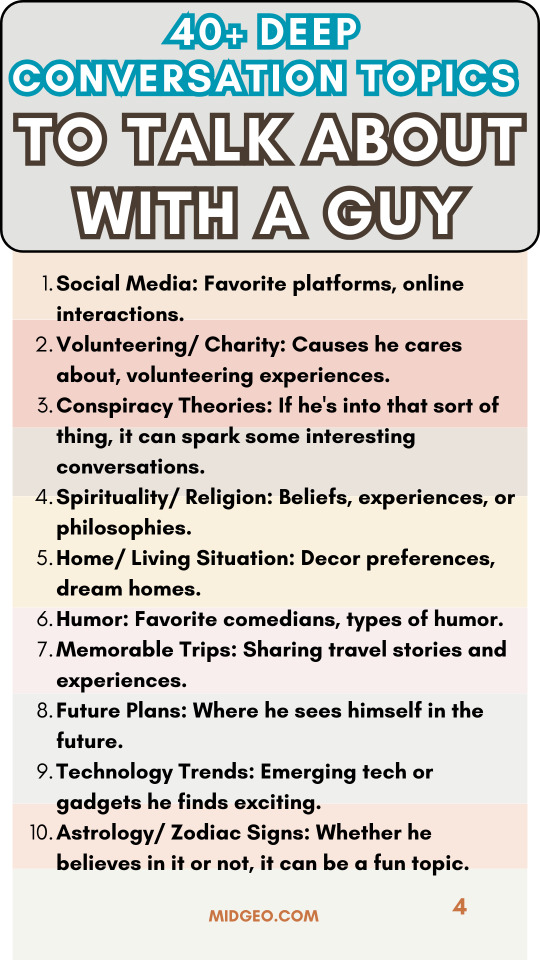
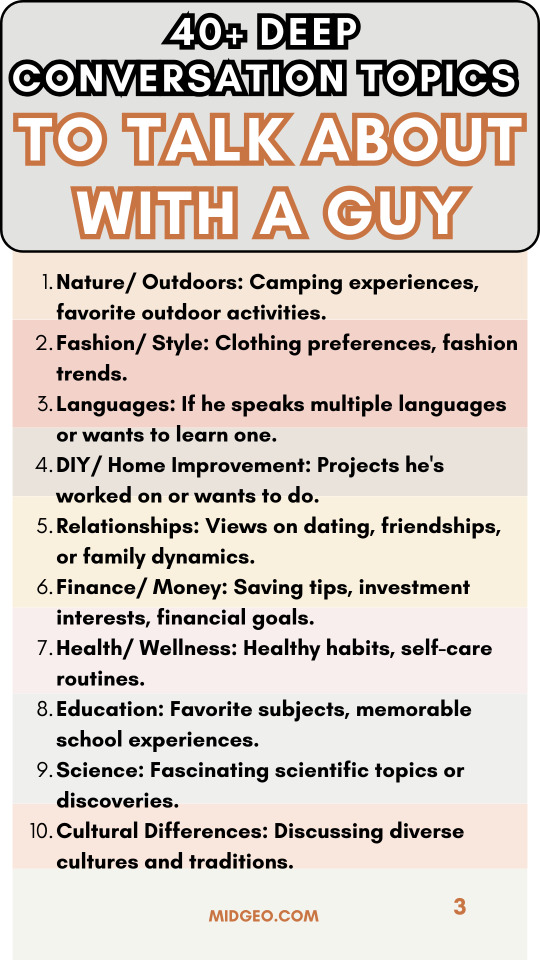
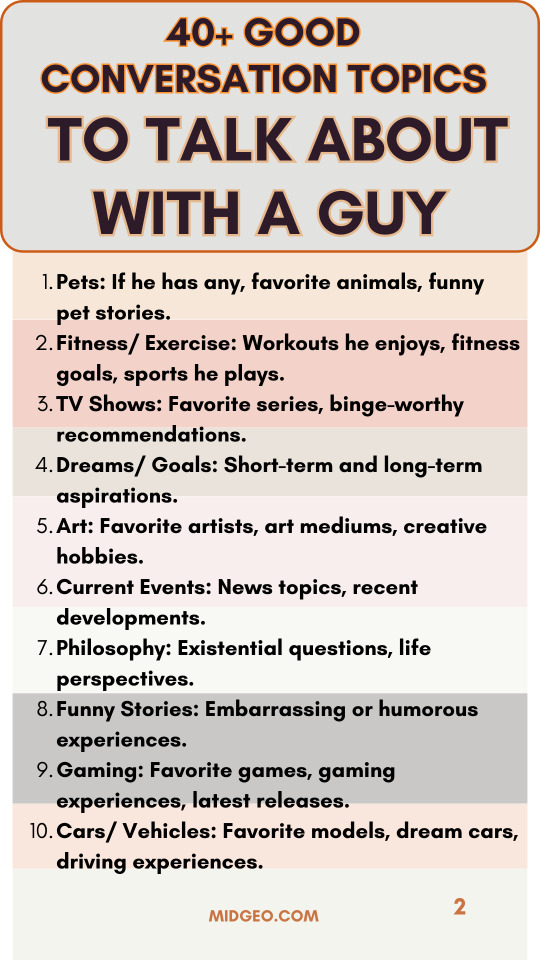
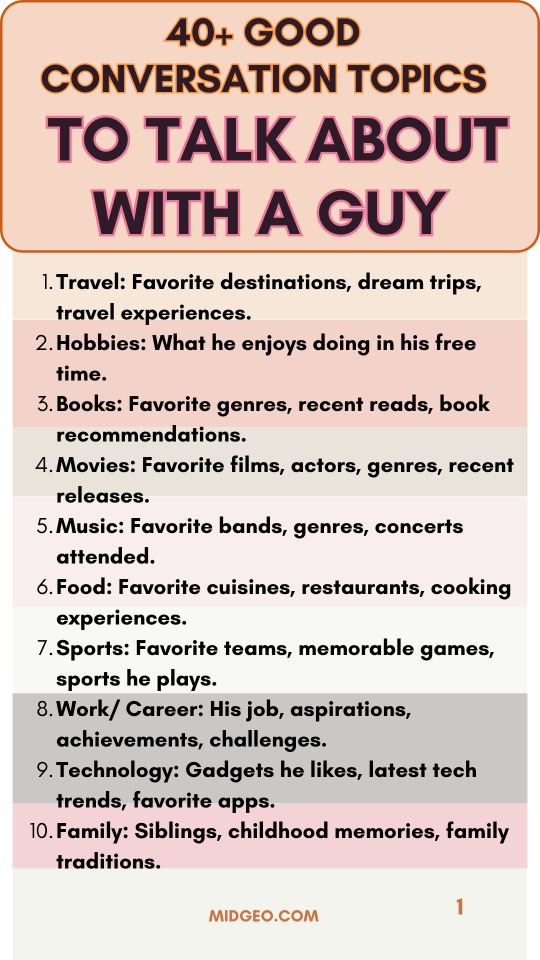
40+ Good Conversation Topics to Talk About With a Guy
40+ Deep Conversation Topics You Can Use to Talk to a Guy
Travel: Favorite destinations, dream trips, travel experiences.
Hobbies: What he enjoys doing in his free time.
Books: Favorite genres, recent reads, book recommendations.
Movies: Favorite films, actors, genres, recent releases.
Music: Favorite bands, genres, concerts attended.
Food: Favorite cuisines, restaurants, cooking experiences.
Sports: Favorite teams, memorable games, sports he plays.
Work/ Career: His job, aspirations, achievements, challenges.
Technology: Gadgets he likes, latest tech trends, favorite apps.
Family: Siblings, childhood memories, family traditions.
Pets: If he has any, favorite animals, funny pet stories.
Fitness/ Exercise: Workouts he enjoys, fitness goals, sports he plays.
TV Shows: Favorite series, binge-worthy recommendations.
Dreams/ Goals: Short-term and long-term aspirations.
Art: Favorite artists, art mediums, creative hobbies.
Current Events: News topics, recent developments.
Philosophy: Existential questions, life perspectives.
Funny Stories: Embarrassing or humorous experiences.
Gaming: Favorite games, gaming experiences, latest releases.
Cars/ Vehicles: Favorite models, dream cars, driving experiences.
Nature/ Outdoors: Camping experiences, favorite outdoor activities.
Fashion/ Style: Clothing preferences, fashion trends.
Languages: If he speaks multiple languages or wants to learn one.
DIY/ Home Improvement: Projects he's worked on or wants to do.
Relationships: Views on dating, friendships, or family dynamics.
Finance/ Money: Saving tips, investment interests, financial goals.
Health/ Wellness: Healthy habits, self-care routines.
Education: Favorite subjects, memorable school experiences.
Science: Fascinating scientific topics or discoveries.
Cultural Differences: Discussing diverse cultures and traditions.
Social Media: Favorite platforms, online interactions.
Volunteering/ Charity: Causes he cares about, volunteering experiences.
Conspiracy Theories: If he's into that sort of thing, it can spark some interesting conversations.
Spirituality/ Religion: Beliefs, experiences, or philosophies.
Home/ Living Situation: Decor preferences, dream homes.
Humor: Favorite comedians, types of humor.
Memorable Trips: Sharing travel stories and experiences.
Future Plans: Where he sees himself in the future.
Technology Trends: Emerging tech or gadgets he finds exciting.
Astrology/ Zodiac Signs: Whether he believes in it or not, it can be a fun topic.
Remember to gauge his interest and comfort level with each topic and keep the conversation flowing naturally!
#conversation#conversation starters#hot seat questions#cute#writing#questions to ask#question to ask a guy#topics#topics to talk#cute guy
27 notes
·
View notes
Text
Why I Do Not Celebrate “LGBTQ+ Pride Month” But Mourn It

by Robert A.J. Gagnon
Not only is pride generally a sin, but also there is nothing to be proud of in the so-called "LGBTQ+ Pride Month." Let us love persons with same-sex attractions and gender-identity dysphoria by rejecting that facet of their existence that dishonors the persons whom God has created in his image.
We should also show sympathy for their struggle with sinful desires, and applaud the way God can use the mortification of such desires to deepen a relationship with himself and others. Yet no one should take pride in such desires or the behavior that follows from gratifying them.
I. What is there to be proud of?
Why should one take pride in being erotically aroused by the distinctives of one's own sex, which is either narcissism or self-deception (viz., the failure to apprehend that one is already fully one's own sex)?
Should people also take pride in being erotically aroused by close kin (incest, i.e., attraction to a kinship same, akin to attraction to a sexual same) or by multiple persons concurrently (which Jesus rejected based on the logic of God's intentional creation of a sexual binary)?
Why should one take pride in rejecting the messaging of one's body as designed by God by identifying with a "gender" at odds with one's biological sex? A complaint against one's Creator is nothing to be proud of, but rather an expression of idolatry.
II. Social harm and the condemnation of Scripture
The "queer" lifestyle is one marked by disproportionately high rates for sexually transmitted disease and higher numbers of sex partners (especially for homosexual males), as well as higher relational turnover and increased mental health problems (especially for homosexual females).
These risks correlate with known male-female differences; expected results when an intimate relationship lacks true sexual counterparts or complements. Same-sex unions don't moderate the extremes of a given sex; they ratchet them up; don't fill in the gaps, but widen the breach.
Scripture (including Jesus and the apostolic witness to him) views homosexual practice and transgenderism as abhorrent sexual immorality ("abominations") that can get unrepentant offenders excluded from God's kingdom. Such behaviors assault the foundation of sexual ethics as defined by Jesus himself, his Scripture, and his apostles.
III. The dangers of “LGBTQ+” politics
The "LGBTQ+" political agenda is the most illiberal and hateful agenda in politics today. It is characterized by efforts to stifle free speech and the free exercise of religion. It is the greatest threat to these freedoms in the Western world today, and has been for decades.
No political lobby has concentrated more on canceling and censoring others, indoctrinating school children, and even mandating compelled speech (the hallmark of totalitarians). People's jobs are being put at risk who dissent from "LGBTQ+" dogma: teachers, doctors, nurses, psychologists, florists, photographers, small business owners, lawyers, corporate executives, etc.
Children are being directed toward chemical castration and mutilation surgery, an obvious instance of child abuse being pushed by the state. Indeed, the state is now moving in the direction of regarding parents who fail to affirm their child's "LGBTQ+" identity as perpetrating child abuse (we know who the real child abusers are), requiring the state's intervention to take your own child away from you.
Men identifying falsely as women are invading women's restrooms, locker rooms, sports, shelters, and prisons, even being celebrated with misogynistic awards declaring them to be better women than real women.
The very idea of faithful Christian education is being put at risk, with calls for tying federal student loans, grants, and accreditation toward lock-step compliance with "LGBTQ+" ideology.
IV. Moral rot and true love
Science is suffering at the hands of a movement that teaches that men too can have periods and give birth. A gnostic spirit pervades the land, declaring entrapment in bodies not designed to express their sexually immoral desires.
This is not a month to be "proud" but rather a month to mourn. Mourn the moral rot pervading our country. It has harmed not only the nation as a whole, but especially those who in their self-delusion celebrate what is injurious to themselves, and to their relationship with others and God.
As Paul told the Corinthians, they should not be "puffed up" or "inflated with pride" over their ability to tolerate an egregious act of sexual immorality (there a case of adult-consensual incest). To support the "queer" life is a manifestation of functional hate, not love.
Therefore, I choose rather to love, to love truly, those who identify as "gay," "lesbian," "bisexual," and "transgender," rejoicing in the truth rather than in the lie, whatever the cost for doing so.
15 notes
·
View notes
Text
#Sports Science Equipment#Sports Science#Exercise Physiology#Sports Physiology#Biomecenics#Sports Biomechanics#National Center of Excellence#Sports Rehab#Sports Recovery#Sports Exercise Science#Health and Exercise Science#Exercise Sports Science#Strength and Conditioning#Sports Physiology Equipment#Rehabilitation equipment#Rehab & Recovery#Exercise Physiology Tools#Science of Kinesiology#Biomechanics Equipment
0 notes
Note
yo interested in the reading recs on the body fascism thing 👀
ok disclaimer that i have various problemsissues with almost all of these & would love for somebody to theorise this better some day
on exercise, sport, and physical activity:
sport and physical culture in occupied france: authoritarianism, agency, and everyday life, by keith rathbone
body fascism: salvation in the technology of physical fitness, by brian pronger
'against exercise', by mark greif
the sculpture machine: physical culture and body politics in the age of empire, by michael anton budd
the expressiveness of the body and the divergence of greek and chinese medicine, by shigehisa kuriyama
empire of ecstasy: nudity and movement in german body culture, 1910–1935, by karl toepfer
ideals of the body: architecture, urbanism, and hygiene in postrevolutionary paris, by sun-young park
on fatness and weight stigma:
fearing the black body: the racial origins of fat phobia, by sabrina strings
being fat: women, weight, and feminist activism in canada, by jenny ellison
seeking the straight and narrow: weight loss and sexual reorientation in evangelical america, by lynne gerber
on food and dietetics:
eating right in america: the cultural politics of food and health, by charlotte biltekoff
modern food, moral food: self-control, science, and the rise of modern american eating in the early twentieth century, by helen zoe veit
diet and the disease of civilization, by adrienne rose bitar
eating nature in modern germany: food, agriculture, and environment, c. 1870 to 2000, by corinna treitel
60 notes
·
View notes